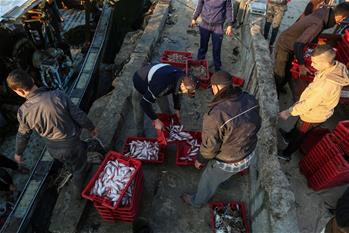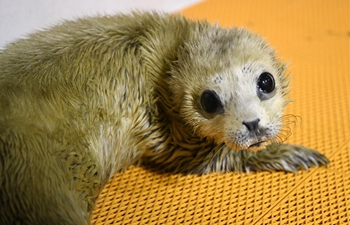SYDNEY, April 4 (Xinhua) -- The number of new corals settling on Australia's Great Barrier Reef has plummeted 89 percent compared to historical levels, a new research showed on Thursday.
Mass coral bleaching events in 2016 and 2017 have left large swathes of the reef badly affected and struggling to regenerate, raising serious questions about the effects of extreme weather events in the future.
Study co-author and professor Morgan Pratchett from James Cook University (JCU) told Xinhua that while some coral types fared better than others, increasing instances of bleaching events aren't giving the reef enough time to recover in between, leading to a reduction in some species.
"This particular research focused on changes in patterns of recruitment - the number of new corals which are settling on the reef," Pratchett explained.
Having measured recruitment levels on the reef since 1996, the team were able to compare past results with data from after the 2016 and 2017 bleaching events, revealing an 89 percent reduction.
"Recovery rates because of these very low levels of recruitment are going to be much, much slower, than would have occurred otherwise," Pratchett said.
"This is problematic because we are expecting to see mass bleaching events and other disturbances occurring even more frequently."
The Great Barrier Reef has experienced widespread bleaching four times in the past 20 years and similar events are expected to increase dramatically with the effects of climate change.
With projected greenhouse gas emission levels, estimates are for the reef to experience extensive bleaching twice a decade from 2035, and annually after 2044.
It's not entirely clear yet the exact effects which coral bleaching will have on the reef, however it is clear that the damage occurring will be system-wide and likely cause significant changes to the reef's biodiversity.
"The single biggest threat to the coral reefs globally now is climate change," Pratchett said.
"If we don't do something to rein in global carbon emissions, then really we're looking at a very dire future for coral reefs."













